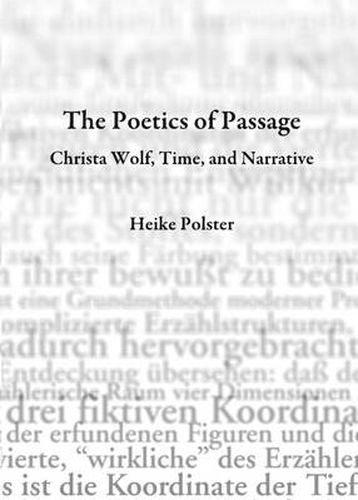Readings Newsletter
Become a Readings Member to make your shopping experience even easier.
Sign in or sign up for free!
You’re not far away from qualifying for FREE standard shipping within Australia
You’ve qualified for FREE standard shipping within Australia
The cart is loading…






Following German writer Christa Wolf’s death in December 2011, the scholarly interest that her work had generated over four decades now culminates in the question of her literary and cultural legacy. Throughout her long writing career, Christa Wolf often pointed to generational differences, and asked questions about historical experiences specific to the period’s contemporaries. The Poetics of Passage discusses the experience of time and history, and their representation as two of the late author’s guiding concerns. Considering Wolf’s critiques of Anna Seghers’ work, Heike Polster develops a framework for understanding the poetic construction of time in Wolf’s texts. Furthermore, the writer’s critical engagement with memory, history, and the writing process is formulated into a poetics of contemporaneity, or Zeitgenossenschaft , that Polster’s study outlines as Wolf’s poetological response to the ontological questions of time’s passage.
$9.00 standard shipping within Australia
FREE standard shipping within Australia for orders over $100.00
Express & International shipping calculated at checkout
Following German writer Christa Wolf’s death in December 2011, the scholarly interest that her work had generated over four decades now culminates in the question of her literary and cultural legacy. Throughout her long writing career, Christa Wolf often pointed to generational differences, and asked questions about historical experiences specific to the period’s contemporaries. The Poetics of Passage discusses the experience of time and history, and their representation as two of the late author’s guiding concerns. Considering Wolf’s critiques of Anna Seghers’ work, Heike Polster develops a framework for understanding the poetic construction of time in Wolf’s texts. Furthermore, the writer’s critical engagement with memory, history, and the writing process is formulated into a poetics of contemporaneity, or Zeitgenossenschaft , that Polster’s study outlines as Wolf’s poetological response to the ontological questions of time’s passage.